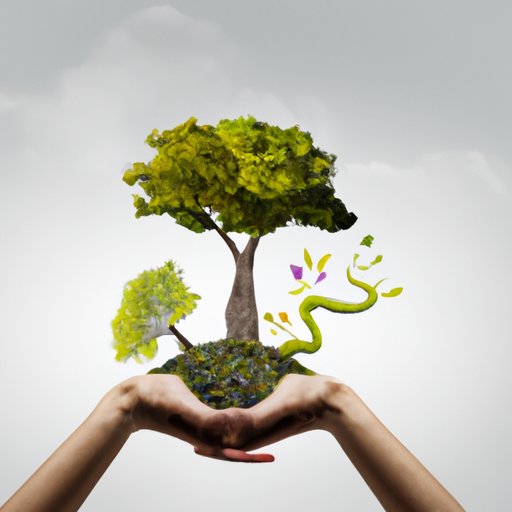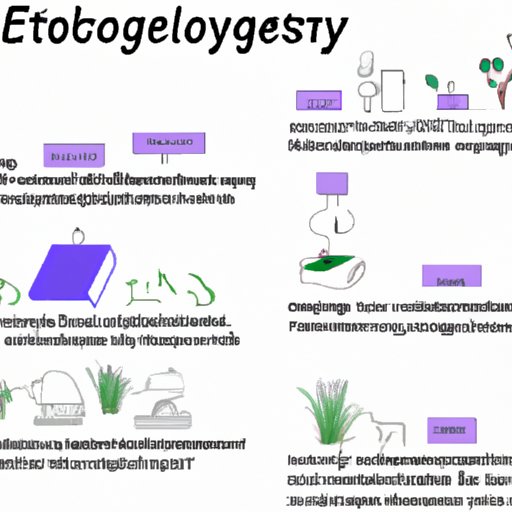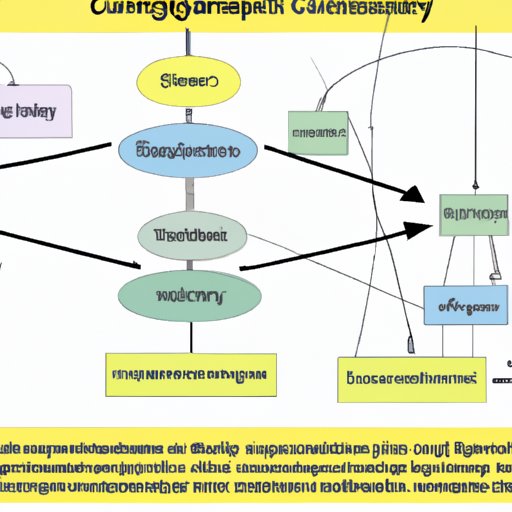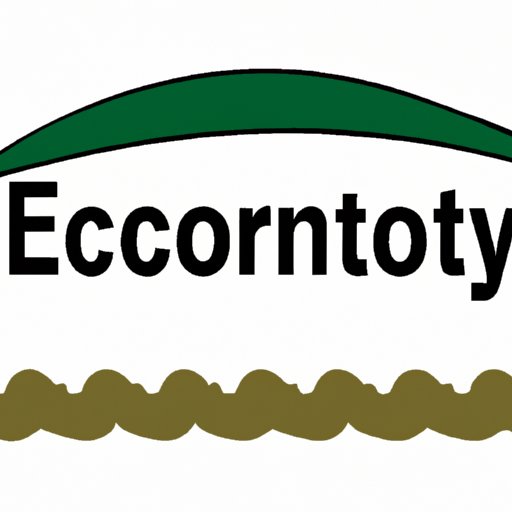Introduction
Ecology is a branch of science that studies the interactions between living organisms and their environment. It is concerned with the distribution and abundance of organisms, the interaction among them, and their interactions with the physical and chemical environment. The term “ecology” was first used by German biologist Ernst Haeckel in 1866 and has since become an important part of the scientific community. In this article, we will explore what ecology is in science, the components of ecology, and how it impacts our lives.
A Primer on What Ecology Is in Science
Ecology is a branch of biology that focuses on the relationships between living organisms and their environment. It looks at the interactions between different species, as well as the effect of humans on the environment. It seeks to understand the dynamics of ecosystems and how they are affected by external factors such as climate change and pollution. Ecology is closely related to other sciences, such as physics, chemistry, and geography.
The word “ecology” comes from the Greek words oikos (house) and logos (study). This reflects the idea that ecology is a study of the relationship between organisms and their environment. For example, some ecologists study the effects of climate change on plant and animal populations, while others investigate the impact of human activities on ecosystems.
The field of ecology is divided into several sub-disciplines, including population ecology, community ecology, and ecosystem ecology. Population ecology looks at the number of individuals of a particular species in an area and how that number changes over time. Community ecology examines how different species interact with each other, while ecosystem ecology looks at how entire ecosystems are structured and how they function.
Exploring the Basics of Ecology in Science
Ecology is composed of three main components: abiotic, biotic, and human. Abiotic components refer to non-living parts of an ecosystem, such as temperature, precipitation, and soil type. Biotic components are living organisms in an ecosystem, such as plants, animals, and microorganisms. Human components include all of the activities people do that affect the environment, such as deforestation, pollution, and urbanization.
The role of human activity in ecology is significant. Humans have a large impact on the environment due to their use of resources, production of waste, and introduction of non-native species. According to a study conducted by the National Academy of Sciences, “Humans are now responsible for transforming more than half of the planet’s land surface, making it difficult for many species to survive in their natural habitats.”

How Ecology Impacts Our Lives
Ecology has both direct and indirect effects on our lives. On the direct side, ecology affects us through the food we eat, the water we drink, and the air we breathe. These resources are essential for our health and wellbeing. Additionally, ecology affects the products we use, such as clothing and furniture, which are made from materials that come from the environment.
Indirectly, ecology affects us by influencing economic growth, public health, and national security. Poor environmental conditions can lead to economic losses due to decreased productivity, increased health care costs, and reduced tourism. In addition, ecological problems can lead to political instability, conflict, and social unrest. As the United Nations Environment Programme states, “The preservation of the environment is essential for sustainable development.”
Understanding the Significance of Ecology in Science
Studying ecology is beneficial because it allows us to better understand the environment and how it works. It also helps us identify potential problems and develop solutions to protect the environment. Additionally, it provides insight into how different species interact and how human activities can affect them.
However, studying ecology can be challenging. It is complex and requires an understanding of multiple disciplines, such as biology, chemistry, and physics. Additionally, it often requires long-term monitoring and data collection, which can be costly and time-consuming. Finally, it can be difficult to accurately assess the impact of human activities on the environment.

An Overview of the Role of Ecology in Science
Ecology plays an important role in science by helping us to understand the complexity of the environment and how it is interconnected. It offers insight into how different species interact and how human activities can alter these interactions. Additionally, it helps us identify potential problems and develop solutions to protect the environment.
The interconnectivity of ecology is one of its most important features. All living organisms are part of a larger system, and any changes to one part of the system can have ripple effects throughout the entire system. For example, the loss of one species can cause a decrease in the abundance of other species or disrupt the balance of an entire ecosystem.
The role of ecology in conservation is also significant. By studying ecology, we can identify areas of high biodiversity and develop strategies to protect them. Additionally, we can monitor the effects of human activities on ecosystems and develop policies to reduce their impact.

Examining the Interconnectivity of Ecology in Science
Biodiversity is an important aspect of ecology. It refers to the variety of species in an ecosystem and is essential for the health of the environment. A diverse ecosystem is more resilient and better able to withstand disturbances, such as climate change or human activities. Additionally, it provides a variety of benefits, such as increased pollination, nutrient cycling, and pest control.
Human activities can also have a significant impact on ecology. Activities such as deforestation, pollution, and overfishing can degrade ecosystems and lead to the loss of species. Additionally, global climate change is causing widespread changes in the environment, which can lead to further disruption of ecosystems.
Conclusion
In conclusion, ecology is an important branch of science that studies the relationships between living organisms and their environment. It is composed of three main components: abiotic, biotic, and human. Additionally, it plays an important role in conservation and has both direct and indirect effects on our lives. By studying ecology, we can gain a better understanding of the environment and develop solutions to protect it.
(Note: Is this article not meeting your expectations? Do you have knowledge or insights to share? Unlock new opportunities and expand your reach by joining our authors team. Click Registration to join us and share your expertise with our readers.)
